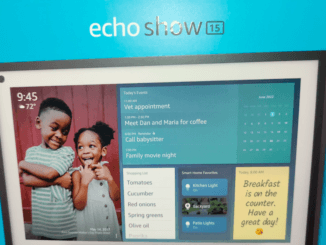Cable Rates Increases: With streaming services like Netflix, Hulu, and Amazon Prime on the rise, this could give all the cable companies like Dish Network, Fios TV, Xfinity, Comcast, and Time Warner cable to charge more for their service. It came to light that the Federal Communications Commission order that was handed down on the 25th of October 2019 a petition that was filed by Charter Cable, finds that AT&T’s TV streaming service is cable competition, opening the door to huge deregulation in monopoly in cable markets.
Cable Act of 1992
Under the Cable Act of 1992, neighborhood controllers are allowed to directly link costs in business sectors with just a single supplier. The arrangement is intended to keep link organizations from utilizing that syndication capacity to set unreasonably high rates. At the point when another link organization comes to town, suppliers can document an appeal to have those guidelines evacuated.
Charter’s case fixated on a little gathering of domains in Massachusetts and Hawaii, yet Charter’s new challenge wasn’t originating from a contending satellite TV administration. Rather, Charter contended that AT&T’s gushing help joined with the organization’s current broadband offering, made up a nearby enough substitute for satellite TV that Charter never again considered a neighborhood-imposing business model. Despite restrictions from both Massachusetts and Hawaii state governments, the FCC, at last, concurred, leaving the Charter allowed to raise its price rates.
FCC Announcement Cable Rates Increases
As the FCC has put it in an announcement, hiking rates can be deregulated any place “a web-based gushing help choice with similar writing is accessible from a LEC associate in the establishment zone.” For this situation, the FCC concluded that AT&T’s TV Now administration met that definition.
LEC alludes to “neighborhood trade transporter,” an administrative term for the phone and link suppliers that fall under the domain of the FCC. The contract’s legitimate gambit possibly works if the challenge originates from another LEC, which makes it hard for Netflix or Hulu to be introduced as aggressive. Be that as it may, with AT&T, Comcast, and different telecoms currently propelling their spilling administrations, the contention can be applied undeniably more comprehensively.
The contract unequivocally affirmed that it would raise costs if the appeal was effective, which many saw as confirmation that the gushing assistance was not genuinely focused. “Contract’s affirmation of the prompt, significant rate builds that deregulation would deliver clarifies that DIRECTV NOW has now been rebranded as AT&T TV Now doesn’t give any aggressive Charter’s rates.
Sen. Ed Markey additionally sent a letter encouraging the FCC to deny the request, contending that naming spilling administrations as a solution for link restraining infrastructures would set a terrible point of reference for future cases.
“In considering non-link contributions in this unique situation, the Commission would viably approve examination of “over-the-top” online video benefits in powerful challenge procedures,” Markey composed. “While the commercial center for video substance has moved significantly as of late, your commitment to work to the greatest advantage of the open remains today.”
After the request came through, Markey conveyed a subsequent articulation denouncing its effect. “Today,” Markey expressed, “the FCC made ready for a ground-breaking link organization to expand its costs regardless of the effect on purchasers.”
Cable Rates Increases are going to affect all of us people who stream or have cable services in the feature.
If you like this video, make sure to subscribe to notifications on my Channel by clicking on the notification at the bottom of the page.



